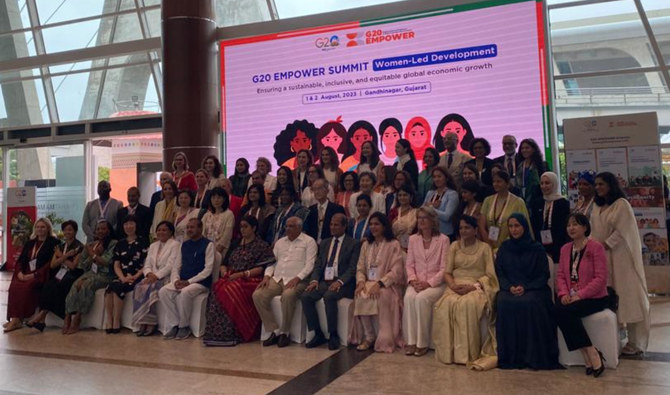RIYADH: A Saudi delegation will highlight the work the Kingdom has done in empowering women, state news agency SPA reported.
A delegation led by Maymouna Al-Khalil, secretary-general of the Family Affairs Council, will this week attend the G20 Ministerial Conference entitled “Women-led Inclusive Development as Cusp of Inter-Generational Transformation.”
The Saudi delegates will highlight the work taking place in areas identified as priorities among G20 states, including education, entrepreneurship, partnerships to enhance the leadership of women, and the role of women as change-makers in tackling climate change, along with the digital skills that support these priorities.
Running from Wednesday to Friday, the delegates aim will highlight the Kingdom’s stance on innovation and technology, along with its commitment to achieving integrative gender equality.
Al-Khalil said the international event this week offered an opportunity to review Saudi Arabia’s achievements in empowering women, within the context of the UN’s Sustainable Development Goals and the Saudi Vision 2030 development and diversification agenda.
The delegation will also highlight the ways in which the Saudi efforts are helping to bridge the gender gap by promoting opportunities that are available to women in the process of digital transformation, locally and internationally, based on the Kingdom’s firm belief in the importance of women’s empowerment in all areas of life, Al-Khalil added.




























